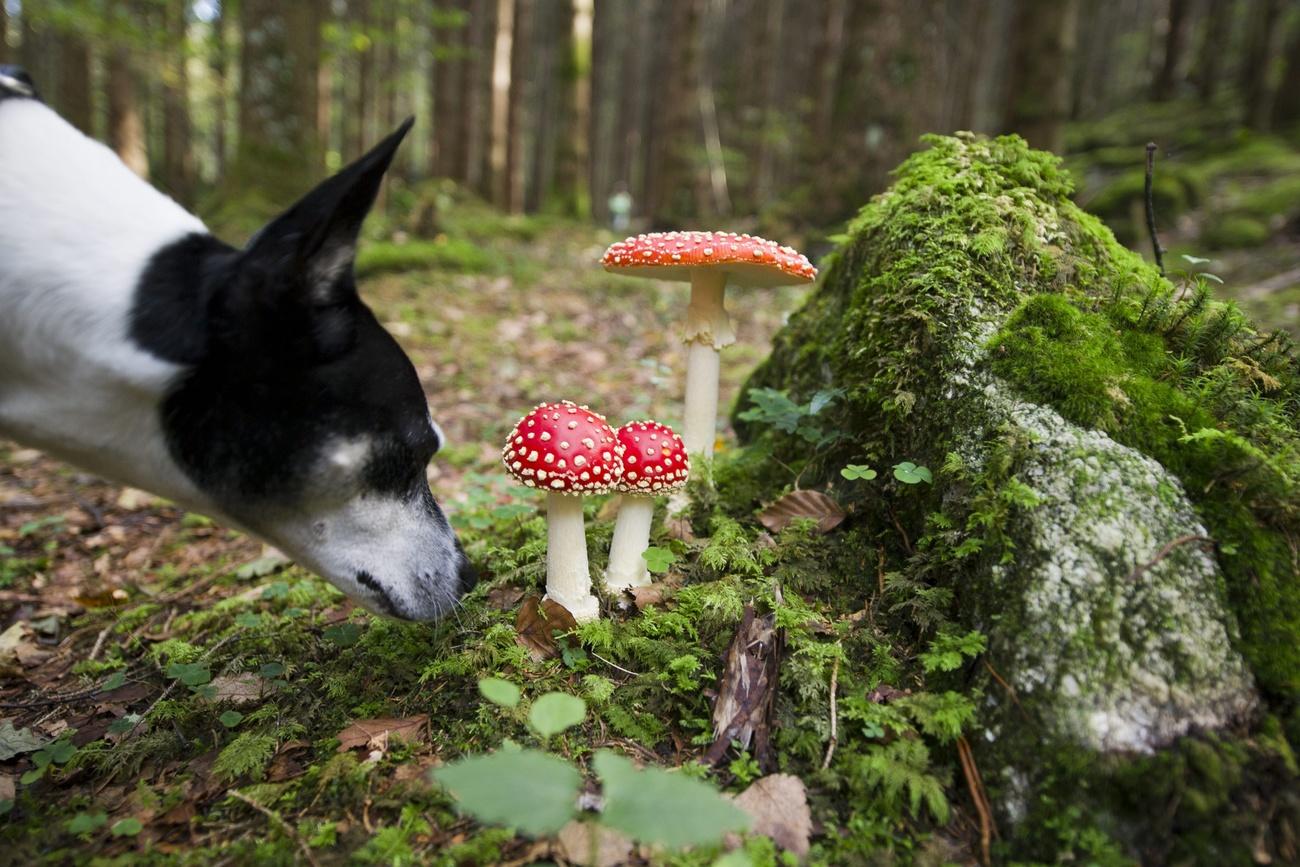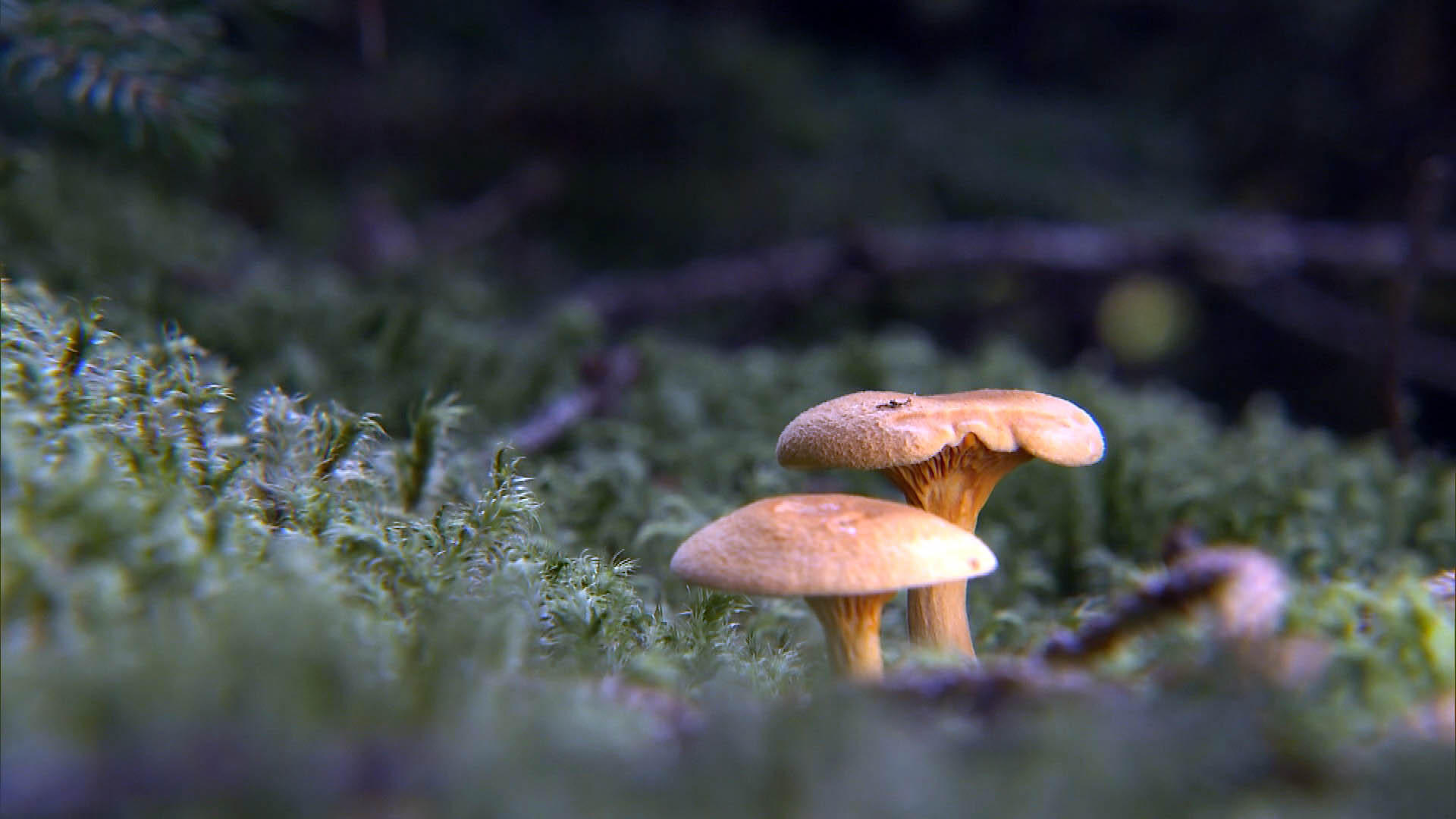
Fewer mushroom identification centres, more poisonings

As mushroom lovers head to the woods, there is also increased activity in the dwindling number of mushroom inspection stations.
“Every year we count 20 to 30 fewer [identification centres] – that’s 5-10% less,” Marionna Schlatter, spokeswoman for the Association of Official Mushroom Control BodiesExternal link, told Swiss public radio, SRFExternal link.
Since 1992, cantons and municipalities haven’t been obliged to provide such inspection bodies, where trained mycologists go through baskets and weed out poisonous mushrooms from harmless and edible ones.
However, some cantons and municipalities have continued to offer such a service until the inspectors retire, for example. They then cut the job to save money. Today there are still about 350 stations.
The umbrella organisation fears that if developments continue like this, there will be more cases of poisoning. Schlatter, herself a mushroom inspector, speaks of a “ticking time bomb”.
The association has already noticed that people who go mushroom hunting in areas without an inspection centre prefer to send in photos of mushrooms of which they’re not sure. Many people also share photos on social media, asking for help in identifying mushrooms.
This can end fatally, Schlatter says. She adds that mushroom apps should be treated with caution, since the same mushroom can look different, depending on its age, the nutrient content of the soil and the kind of the growth.
“It’s almost impossible for an app to detect that,” she says.
More poisonings
If poisoning is suspected, 24-hour advice is available on Tox Info SuisseExternal link’s emergency hotline 145. This year Tox Info says it has seen an extraordinary number of mushroom poisonings or suspected cases.
“There have already been around 200 more poisonings or suspected cases this year than at the same time last year,” says Katharina Schenk, senior physician at Tox Info. “These include first poisonings with the dangerous death cap mushroom.”
The inspectors are calling on the government to reconsider the mushroom identification centres as a public service and to adapt the Federal Act on FoodstuffsExternal link accordingly.
However, the government sees no need for action. Consumption is a private matter, it believes, and the consumption of mushrooms “for private domestic use” is also a question of personal responsibility.

More
An abundant mushroom season

In compliance with the JTI standards
More: SWI swissinfo.ch certified by the Journalism Trust Initiative






























You can find an overview of ongoing debates with our journalists here . Please join us!
If you want to start a conversation about a topic raised in this article or want to report factual errors, email us at english@swissinfo.ch.